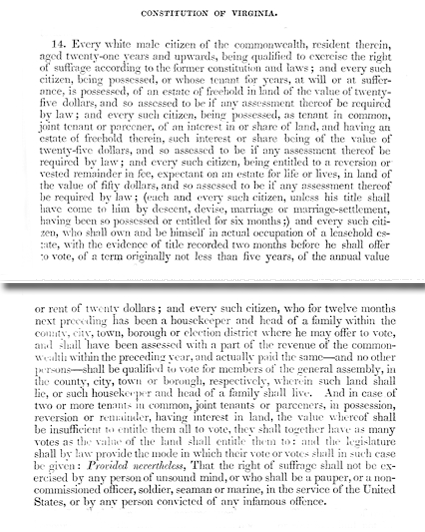Virginia Constitution, Rights of Suffrage (1830)
Annotation
Delegates to the 1829-1830 Virginia Constitutional Convention included such prominent Virginians as James Madison, James Monroe, John Tyler, and John Marshall. Issues of representation and suffrage dominated the debate, which was largely a contest between eastern Virginia land and slave owners and the less affluent residents of western Virginia. Virginia was politically dominated by the wealthy tidewater planters, who were overrepresented in the state legislature because slaves were counted 3/5ths in apportioning representation. The convention ultimately compromised by loosening the requirements for suffrage—granting white suffrage to property holders with less value than had been previously required and extending the right to leaseholders and houseowners who paid taxes—and reducing the number of delegates and senators to the Virginia General Assembly based on the white population. At this time, Virginia was the last of the twenty-four states with property requirements for suffrage. The property requirement was not dropped until 1851.

Source
The Code of Virginia (Ritchie, Richmond 1849), VA Constitution 1830, Article III, Sec 14, Right of Suffrage, 41-42.